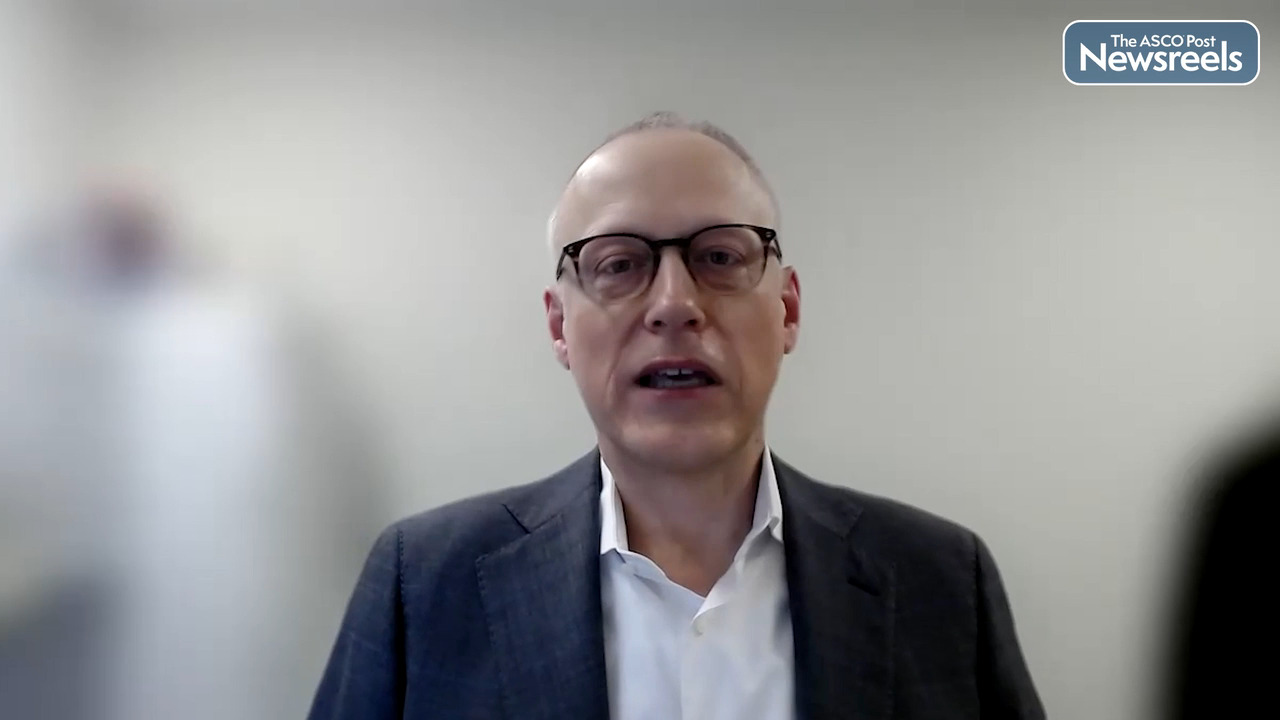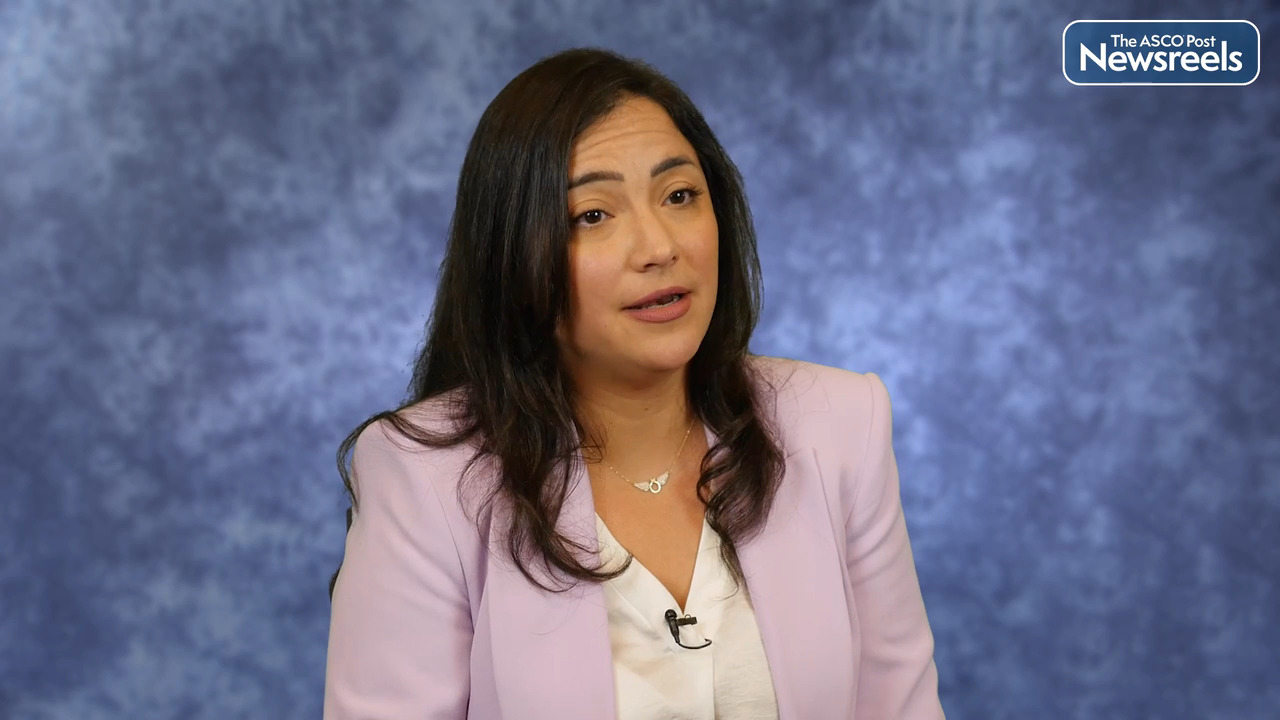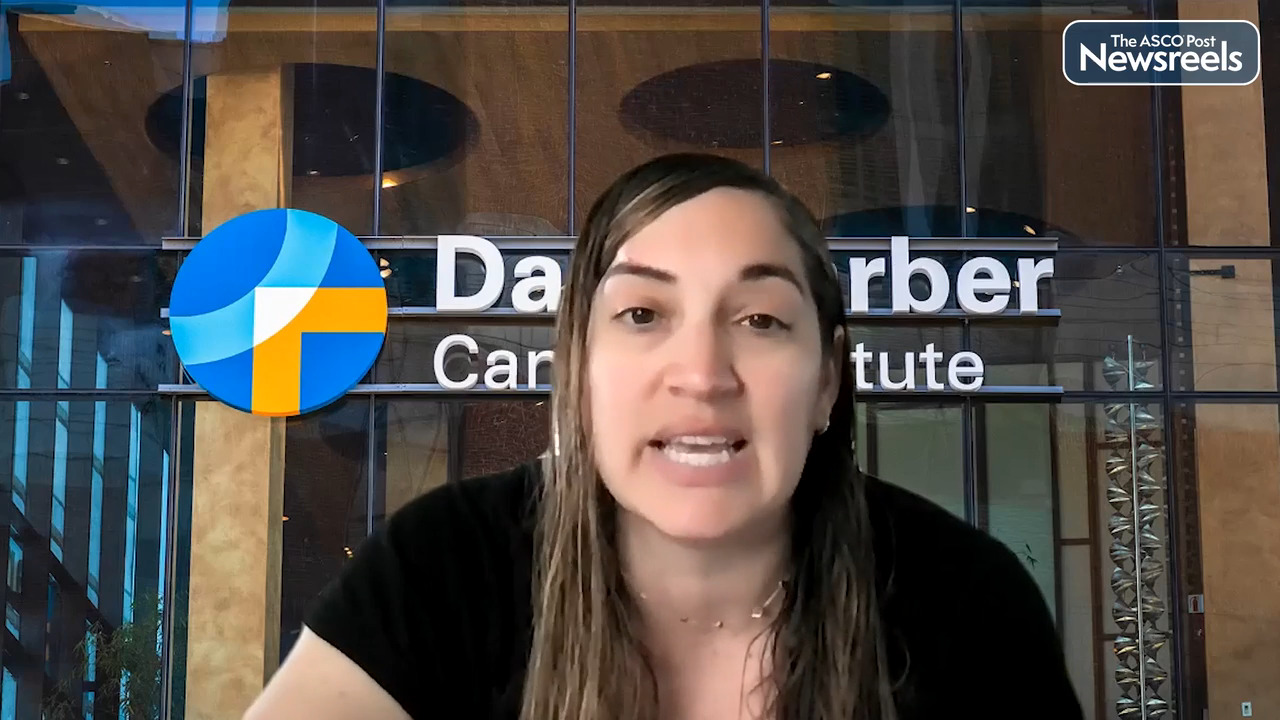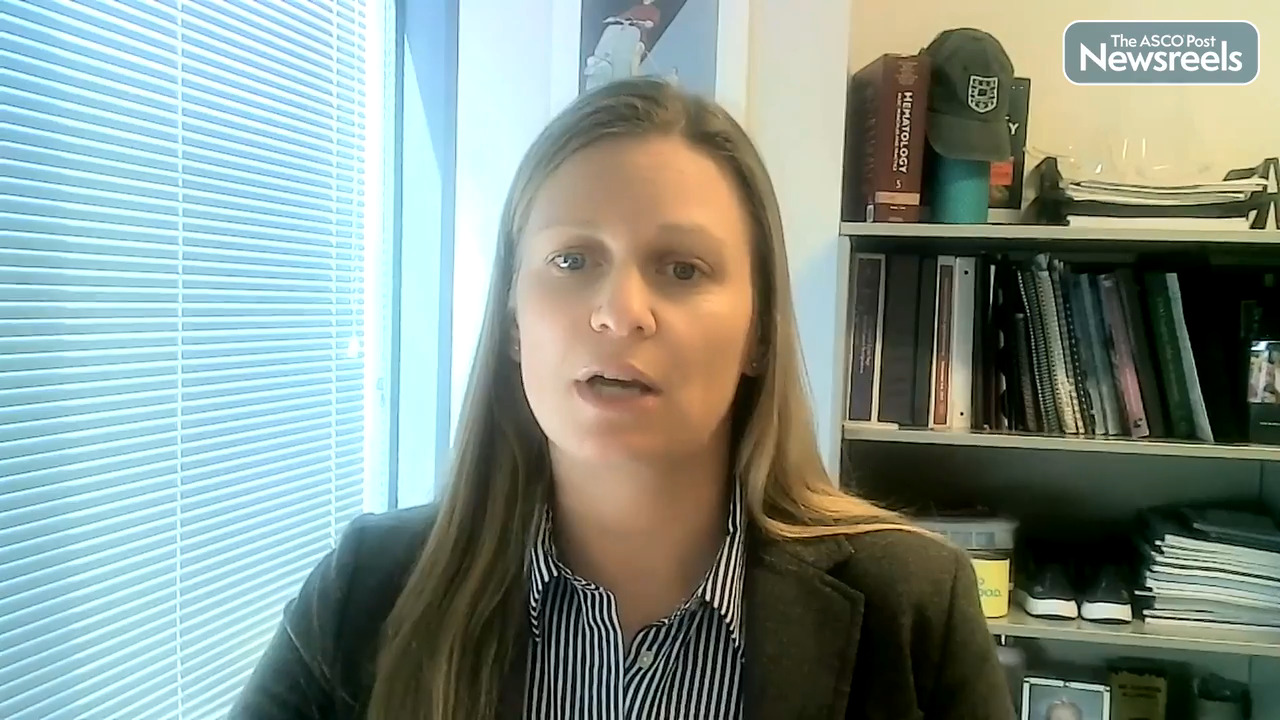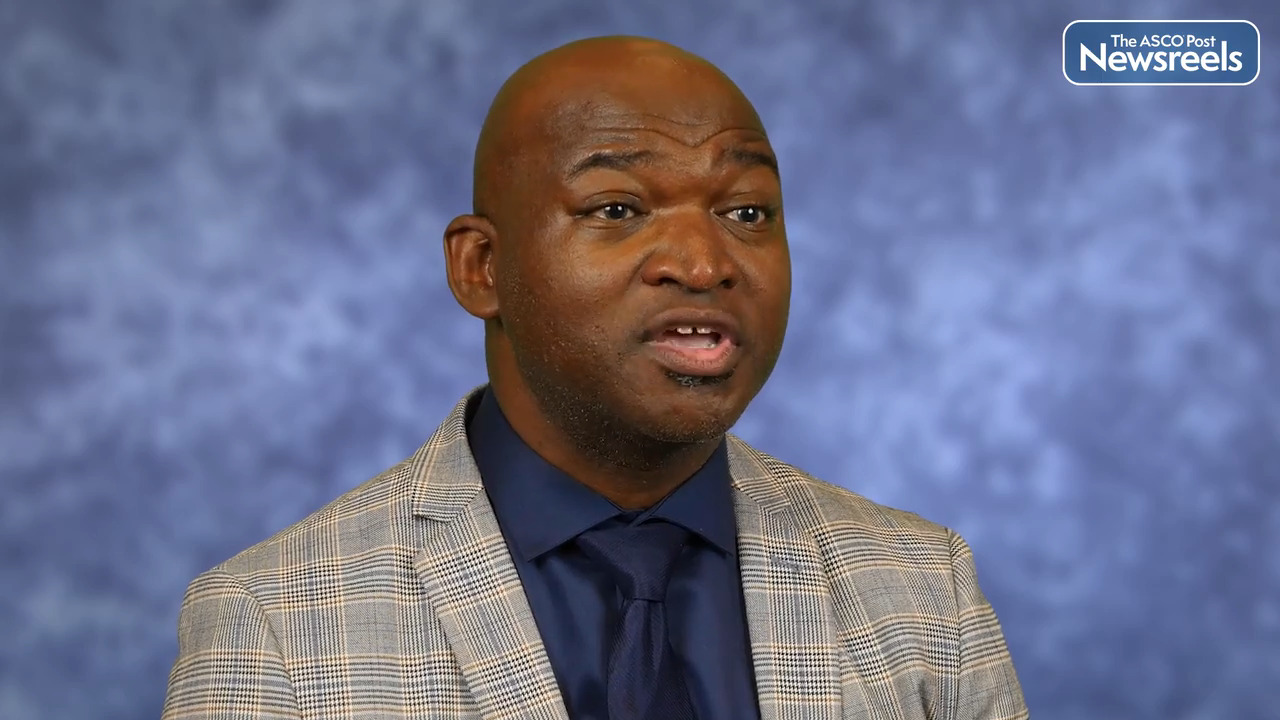Pierce K.H. Chow, PhD, MBBS, on Hepatocellular Carcinoma: New Data From the IMbrave050 Trial of Atezolizumab, Bevacizumab, and Active Surveillance
AACR Annual Meeting 2023
Pierce K.H. Chow, PhD, MBBS, of the National Cancer Centre, Singapore and Duke-NUS Medical School, discusses phase III findings showing that, for patients with hepatocellular carcinoma at high risk of disease recurrence, adjuvant therapy with atezolizumab plus bevacizumab after resection or thermal ablation was more effective than active surveillance. According to Dr. Chow, these results could lead to reassessment of surgical resection in this disease. (Abstract CT003)
Transcript
Disclaimer: This video transcript has not been proofread or edited and may contain errors.
The IMbrave050 study is a phase three global study of atezolizumab plus bevacizumab used as adjuvant therapy versus active surveillance in patients who have undergone curative surgical resection and also ablation. The premise of this study is that there was no previous adjuvant therapy that was validated for HCC. And because of that, recurrence rates in HCC are very high, particularly among patients with larger tumors, multiple tumors, vascular invasion, and of course poor tumor differentiation.
And so for this trial, we specifically enrolled patients with these poor cancer characteristics in a randomized controlled manner. So four to 12 weeks after surgical resection or ablation, they're randomized to receive either atezolizumab and bevacizumab as adjuvant or to the surveillance arm, the caveat being that if they are on the surveillance arm and they do have a recurrence, they are permitted to cross over to the atezolizumab plus bevacizumab arm, and this was run across the entire world.
At the point of randomization, the patients are very well distributed between the two groups. Most of the patients were men. They were around 60 years old. More than 80% of them were from Asian ethnicity, and more than 70% of them were enrolled from Asia outside of Japan. More than 60% had evidence of vascular invasion, and more than 40% of them had poor tumor differentiation.
The primary endpoint of the study was recurrence-free survival as assessed by independent review facility, and we adopted a hierarchical analysis approach. So the first interim analysis was triggered when 253 recurrence-free survival events were encountered. And at this first interim analysis, the IMbrave050 met its primary endpoint and became a positive trial and had a hazard ratio of 0.73 and a P value of 0.012.
And this was achieved at the median follow up of 17.4 months, and at that time, recurrence-free survival was 78% for patients on atezolizumab plus bevacizumab versus 65% for patients on active surveillance. And when we look at the recurrence rates, it was particularly impressive because patients on atezolizumab and bevacizumab had a one third or 33% decrease in recurrence rate. So at landmark analysis at 12 months, this was 34% versus 20% for the two arms respectively.
The adverse events were not different from what we saw in 150, the earlier trial for this therapy. The duration of treatment for patients on the 050 was significantly longer than that for the earlier 150 trial, which was for advanced HCC. So in the 050, for example, patients on atezolizumab had a median duration of treatment of 11.1 months and for bevacizumab it was 11 months. But in spite of this very much longer duration of treatment, we do not see an increase in adverse events for 050 compared to the earlier study. The most important adverse events which were encountered were proteinuria, hypertension, decrease in platelet counts, and also derangements of liver function.
So in conclusion, this is the first trial historically to be positive for adjuvant therapy in the phase three setting, and this applied to patients across the major clinical subgroups. The adverse events were as we expected for this drug and the disease. And atezolizumab plus bevacizumab may become the standard of care for patients in terms of adjuvant therapy after curative resection or ablation and may also change clinical indications for surgical resection.
Related Videos
The ASCO Post Staff
Marcus O. Butler, MD, of Toronto’s Princess Margaret Cancer Centre, discusses evidence of tumor response in orbital lesions treated with tebentafusp in patients with metastatic uveal melanoma. Tebentafusp is a first-in-class novel bispecific protein, the first therapy to show superior overall survival compared with standard therapy for metastatic uveal melanoma. Based on these study findings, a role for this agent as a neoadjuvant treatment warrants further investigation. (Abstract LB 118/1)
The ASCO Post Staff
Diana Azzam, PhD, of Florida International University, Robert Stempel College of Public Health and Social Work, discusses her study results, which showed that treatment protocols guided by functional precision medicine yielded significantly longer progression-free survival and improved overall response in pediatric patients with relapsed or refractory cancer, compared with their previous treatment and standard of care. (Abstract LB358)
The ASCO Post Staff
Christina M. Dieli-Conwright, PhD, MPH, of Dana-Farber Cancer Institute, discusses her research on the ways in which postdiagnosis exercise, particularly resistance exercise, can build strength and muscle mass and affect cancer outcomes. She also describes her focus on biomarkers related to body composition, inflammation, metabolic dysregulation, and cognition—all influenced by exercise.
The ASCO Post Staff
Lindsay L. Peterson, MD, of the Washington University, St. Louis, discusses the value of physical activity in improving cancer prognosis, especially for patients with breast or colon cancer. Aerobic exercises and resistance training are recommended during and after treatment. Exercise may help inhibit tumor growth, improve quality of life by decreasing fatigue and anxiety, build muscle mass, increase physical function, and reduce surgical complications and treatment delays.
The ASCO Post Staff
Karriem S. Watson, DHSc, MPH, of the National Institutes of Health All of Us Research Program, discusses the importance of engaging in clinical trials for those who are underrepresented in biomedical research. Community engagement is a proven and effective tool, Dr. Watson says, to enhance participation in research by increasing access to and awareness of medical studies and has already been shown to expand the reach of therapies, improving cancer outcomes. (Abstract PL03-05)
